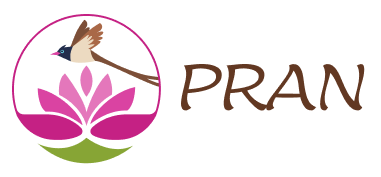Partner Driven Activities

Thanks to SSHRC and dynamic collaboration with the University of Alberta, Africa Centre, DAL, NAIT, and MSVU through PRAN, we launched the project “Preliminary Data for the Africa Centre’s Entrepreneurship Initiative for Black Albertans.” Our joint efforts led us to design, develop, and execute a study focusing on Black entrepreneurship in Alberta. The research encompassed an in-depth literature review, a comprehensive survey, and active community involvement. The valuable insights derived from this initial data played a pivotal role in shaping a comprehensive report for the Africa Centre, as well as multiple manuscripts. The project has resulted in the publication, "Black entrepreneurship in Western Canada: the push and pull factors", a second publication is currently in press, and a third is coming soon!
Family to Family (F2F): Exploring Diversity and Learning From One Another was a collaborative project between La Francophonie Canadienne Plurielle (FRAP) and PRAN. In conjunction with FRAP’s Settlement Workers in Schools (SWIS) program, F2F used PhotoVoice to explore issues of family and gender roles in supporting children’s education, among immigrant and refugee francophone families from sub-Saharan Africa and the Caribbean. With financing from an Ethnocultural Grant from the Government of Alberta, PRAN supported FRAP in staff training in PhotoVoice methodology.
Through F2F, FRAP:
- Facilitated three PhotoVoice workshops in April 2025 with 24 francophone men, women, and youth from West Africa and the Caribbean.
- Hosted a community dialogue with PhotoVoice participants, FRAP SWIS staff, and school representatives in May 2025.
- Held a project Exhibition, which highlighted the PhotoVoice materials for the community.
Additional analysis of materials from the F2F project will support the development of FRAP services and programming with families and francophone schools. Schools across Alberta, as well as the Royal Alberta Museum, have expressed interest in the project and exhibition. Based on this interest, plans are underway to extend the exhibition's reach to new audiences across Alberta. Click here to view photos from the project on our Gallery page.
With funding from Immigration, Refugees and Citizenship Canada (IRCC) through the Edmonton Local Immigration Partnerships (ELIP), Francophonie Canadienne Plurielle (FRAP) led a two-year initiative to examine factors impacting the well-being and safety of Black Francophone immigrant communities in Alberta. Coordinated by Dr. Philomina Okeke-Ihejirika, the project engaged over 50 participants, including community leaders, religious leaders, and service providers in a series of consultations and focus group discussions held between February 2022 and March 2023.
The discussions identified five key research themes: barriers to accessing social services, challenges with professional integration, social and cultural isolation, the unique challenges of being a minority within a marginalized population in an English-speaking province, and the strengths these communities bring to overcoming these challenges. These insights informed the development of a cross-sectional survey targeting the broader Black ethnocultural immigrant population, focusing on integration, risk mitigation, social development, belonging, and culturally responsive services.
The survey, available in French and English, was distributed through online platforms, community leader outreach, and events hosted by the Africa Centre. Ethics approval was secured from the University of Alberta, ensuring rigorous research standards. Community leaders played a central role in shaping the survey and its implementation, emphasizing the need for actionable data to support Black Francophone immigrants in Alberta.
- Between 2021-2022, we partnered with the Killam Corner Stone and the University of Alberta to conduct a qualitative study in collaboration with the Africa Centre and Norquest College, focusing on Black Albertans on a project called: Addressing Intimate Partner Violence among Edmonton’s African Immigrants: A Communal Approach. The project expanded our database and knowledge, fuelling community-driven initiatives and laid the groundwork for projects like “Portraits of Resilience,” “Navigating Canada,” “Knowledge Hub,” and more IPV-related endeavours. The findings are integrated into PRAN’s Cross-sectional survey and Community Scan, while also enhancing the skills of Research Assistants.
- Simultaneously, we conducted a literature review and a qualitative study of Black Albertans “Intimate Partner Violence Interventions within Immigrant Populations: A Scoping Review of Advanced Industrialized Nations, including Canada.” Supported by Women and Gender Equity and in collaboration with the University of Alberta. The report emphasizes seven key IPV prevention messages, shaping our Knowledge Mobilization effort and enriching our database for future PRAN research endeavours.
- Expanding on the above, we began a third project spanning 2021-2024: “Successful Initiatives to Address Intimate Partner Violence against Women and Girls in Alberta’s Black Communities” in partnership with Africa Centre and funded by Women and Gender Equality. Leveraging data from previous research, we crafted strategies and tools to prevent IPV in Black communities like pamphlets, animated videos, and a podcast series. Click here to explore those resources, which complimented our interactive sessions and Framework Report. Aligning with projects like “Exploring Canada,” “Navigating Canada,” “Knowledge Hub,” and “Portraits of Resilience,” this effort merges research, knowledge mobilization, and community engagement to stimulate policy discussions. Click here to visit Africa Centre’s website section on the project and their Enhancing Gender Equity Program.
View photos from the second Obinokor Talks.
Through our project, the "On the Path of Social Responsibility and Global Leadership," we successfully secured funding from the Queen Elizabeth II Diamond Jubilee Scholarship program. This program serves as a platform for talent exchange between Canada and other nations, focusing on West Africa. With the support of the Queen Elizabeth Scholarship (QES), our commitment lies in nurturing the upcoming generation of community-engaged researchers, leaders, and builders. Our approach integrated networking, academics, leadership development, and community partnerships.
In close collaboration with QES, our goal was to foster cross-cultural experiences that establish the foundation for transnational scholarship and collaboration. This effort contributes to both local and global community engagement. At the core of our QES program is the cultivation of community-focused leaders in both Canada and West Africa.
The program offered:
- An online curriculum accessible through our Gender Institute
- Personalized mentorship by accomplished scholars and non-academic partners to enrich the learning experience
- Spanning across faculties, we connect scholars with experts in diverse fields like feminism, Western worldviews, and African-centered approaches.
Our scholars benefited from comprehensive online and in-person orientations, personalized mentorship, and complete access to our Gender Institute’s resources for research, leadership development, and community engagement training.
As part of their engagement, scholars:
- Undertook a research project culminating in a publishable manuscript
- Engaged in community placements coordinated through our program
- Participated in networking opportunities extended by our program and an Inter-university committee.
While we experienced external program delays, we welcomed our first two scholars in October 2023. Our third and fourth scholars arrived in the spring and summer of 2024, respectively. Our collaboration with Campus Saint-Jean facilitated support for two francophone scholars from Togo who completed their placements in November 2024. Over the course of the project, we had 18 scholars from our West-African partner institutions complete QES placements with us. Furthermore, we actively participated in a subcommittee that organized an inter-university event for QES scholars. The platform enabled scholars to showcase their work and foster connections with peers across various QES programs throughout Canada. The program officially ended in December 2025.
Learn about our past scholars.
Focusing on SSAI newcomers, our methodology seeks to adopt a community-first approach to comprehensively document the different aspects of their lives in Canada, emphasizing their resilience and agency despite encountering various barriers. Through community-engaged methods our academic and non-academic partners collaborate with community members to combine participatory research and traditional African knowledge guided by Ubuntu – I am because we are, to facilitate this research and disseminate knowledge. We use interviews, focus groups, surveys, and collaborate with institutions to gather primary and secondary insights. The results from these studies will be disseminated among the community through websites, newsletters, conferences, seminars and other media, as per our commitment to mobilize the knowledge and not confine it within the ivory tower of academia. Our Capacity Building Institute is dedicated to train graduate students and early researchers to raise awareness on the required gender and cultural sensitivity when working with under-represented communities. graduate students and early career researchers are encouraged to participate in different aspects of the project and are carefully mentored by senior academic and community partners to refine their skills and knowledge.
